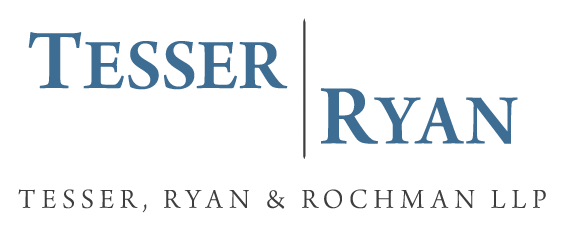Tesser, Ryan & Rochman, LLP wins dismissal of lawsuit in Supreme Court due to failure to comply with licensing requirement
Professionals have the burden of complying with all licensing laws.
Gregory J. Ryan, Esq.
In most counties, including New York County, a home improvement contractor must be properly licensed. The licensing laws are consumer protection laws enacted to protect homeowners.
In a recent case, homeowners in Putnam County hired a contractor to perform extensive improvements to their home. After paying the contractor a large down payment, as well as paying installment payments, a dispute arose regarding the quality of the work being performed by the contractor. The homeowners withheld final payment until the defective work was cured. The contractor walked off the job site and demanded payment of all unpaid charges. The contractor then filed a lawsuit against the homeowners in Supreme Court, Putnam County.
Tesser, Ryan & Rochman, LLP represented the homeowners and investigated the contractor. The firm discovered that while the contractor had home improvement licenses in other counties, it was not licensed in Putnam County. In response to the complaint, an answer was served alleging that the failure to be licensed in the county where the work was performed precluded the home improvement contractor from recovery. The contractor had asserted various causes of action in the complaint, including claims based in contract, quantum meruit, account stated, fraud, and for the fair value of the work performed. In addition, the contractor alleged that the homeowners knew that the contractor was unlicensed but nevertheless hired the contractor.
After filing an answer, and asserting counterclaims based, in part, upon the defective work, TRR filed a motion to dismiss on behalf of the homeowners. The motion was fully briefed and submitted to a Justice of the New York Supreme Court, Putnam County.
The Court agreed with the defenses and legal arguments asserted by TRR and dismissed the complaint of the contractor, with prejudice (meaning the contractor could not re-assert its claims against our clients). In its Decision and Order, the Court agreed with the firm’s legal argument and stated that an unlicensed contractor may not enforce a contract for home improvement services. The Court issued a warning to unlicensed home improvement contractors: “despite not being licensed, Plaintiffs agreed to perform the work – a decision they made at their own peril [Emphasis supplied].” The Court explicitly stated that the home contractor did not have a legally sufficient claim against the homeowners. The Court also found that even if the homeowners did promise to pay for the work performed, with knowledge that the contractor was unlicensed, there is a not a claim for fraud and the contractor still does not have a basis for recovery.
The Court’s decision makes it clear that the burden of knowing and complying with licensure requirements is on the professional. Licensing laws, regulations, and requirements, are consumer protection laws enacted to protect the public. The burden of knowing about and understanding all pertinent licensing laws is on the professional, not the consumer, and the failure to fully and properly comply with licensing laws may have devastating consequences to a professional. In addition, to possibly being unable to enforce a contract or agreement, a professional may also face professional discipline charges and sanctions for ignoring licensing laws and regulations.
Tesser, Ryan, & Rochman, LLP regularly counsels and advices practitioners in all professions of their legal obligations and assists professionals in establishing proper business practices and obtaining all required approvals and licenses. The firm represents consumers as well in disputes and litigation with unlicensed professionals.
Please feel free to contact us should you have a concern about your professional practice or if you are having a dispute with a professional. The firm can counsel and assist professionals regarding the licensing requirements of a particular profession. The firm also can investigate and assist a consumer if you believe an improper claim has been made against you by an unlicensed professional.
